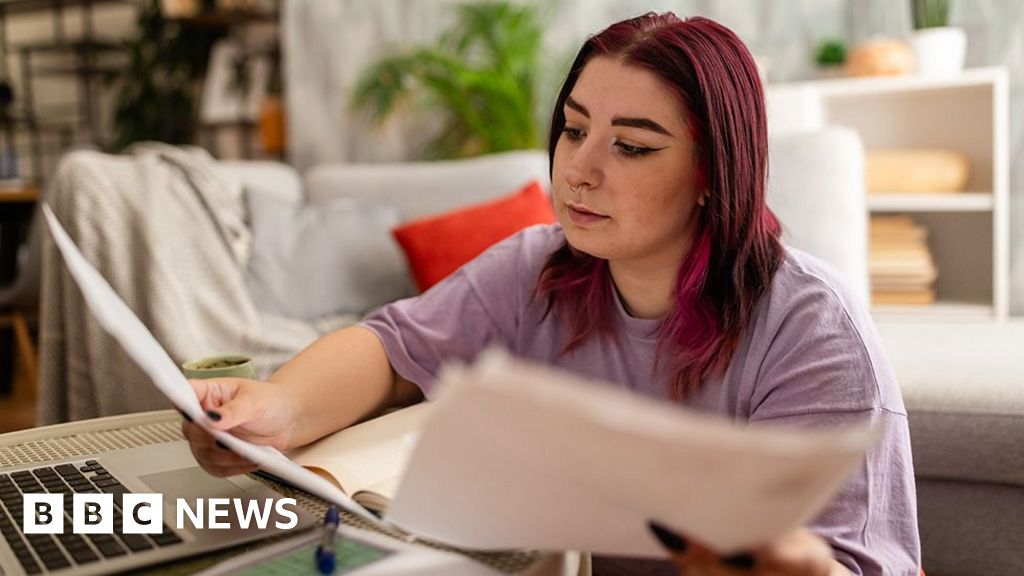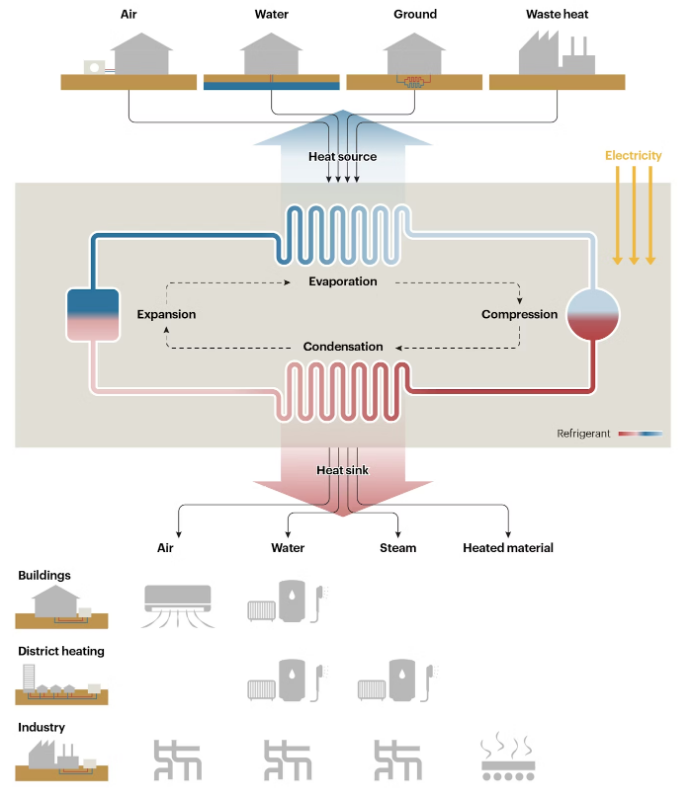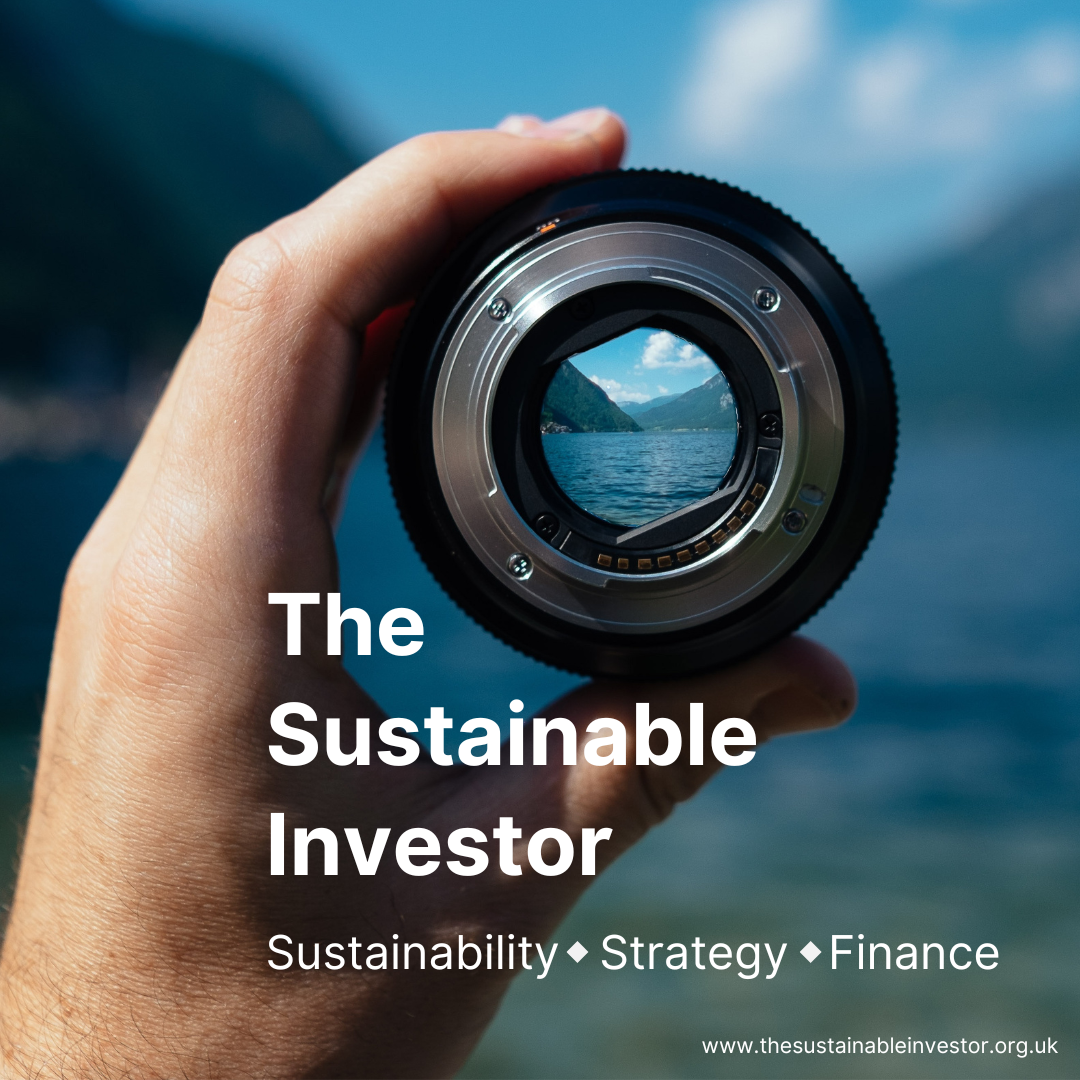
Sunday Brunch: Things will be different, accept it & move on.
We need to change our business ecosystems if we are going to deliver the new, more sustainable ways of working. Assuming that we can do the same things as before, just greener, will not work.
“The secret of change is to focus all of your energy not on fighting the old, but on building the new” — Socrates
Why do we keep on saying that the future needs to be different, but keep acting as if it's going to be the same? Yes, I know the way we do things now is comfortable, and that change is hard. But for many sustainability transitions doing things the old way will not work. We also need to change the associated ecosystem.
All of the changes we want to make are going to need consumer/customer acceptance. Or even better, whole hearted support. This requires two things. The first is being upfront about the costs, and deciding who pays. And the second is designing the new system so that it works, it cannot just be the old system made greener.
A good example of this is our electricity system. The new system changes not just how we generate electricity, but also how we use it, and what we pay for it. The old ecosystem is not going to be fit for this purpose, so we need a new one. And the same applies to lots of other sustainability transitions.
This blog has been kicking around in my head for a while now. And a recent post from Ron Ben-David at Monash University in Australia prompted me to finish it.
Why his post caught our eye was that it neatly encapsulates what is hard about the sustainability transitions. They require change - and humans resist change.

What is a consumer led future in electricity?
Changes to our electricity ecosystems are a great example of the pressures being faced by all sorts of industries. At one level we know that we will need new ways of doing things, new ecosystems. But we resist change. Often not for selfish reasons but because change is hard and risky. But, we argue that without change, the transitions will take longer or even not happen at all.
The old way of running our electricity system, using centralised grids and fossil fuels, was tried and tested. And to be honest, if it wasn't for climate change, we probably wouldn't have changed it.
The new electricity system, using variable renewable generation, is necessary. But it's also very different. It's not the old system, just with renewables instead of fossil fuels.
To use the three D's, it's not only decarbonised, it's also decentralised and digitalised. And let's add a fourth D, it's different. When we use electricity will be different (demand management), how we think about it's cost/price will be different (cheaper some times of the day), and the addition of rooftop solar, EV's and stationary storage batteries means how we use it will be different, we could be producers as well as consumers. All of this changes how the system needs to work, and very importantly, how we interact with it.
Australian experience
Electricity grid operators and regulators all over the world are grappling with this, and with the associated cost question (who pays and when?). Australia is doing the same. There it's called a 'review into electricity pricing for a consumer-driven future'.
Ron Ben-David, a Professorial Fellow at Monash Business School, recently posted his response to this process on LinkedIn. He rather aptly titles it 'Doing the same Expecting different'.

In it he covers a lot of ground, I just want to pick up on a couple of key issues that also have relevance to other sustainability related transitions.
The first is the underlying belief that if consumers are provided with more (better) information and price signals, they will respond ‘rationally’ to market opportunities. But is this true?
If people decide which house to buy in somewhere between 40 mins and an hour, how much time will they spend on their electricity supply. They may be happy to switch suppliers every year, but responding to price signals in real time? I doubt it.
The second is the new system design should (to quote) - allow consumers to save money, reward them for providing services to the wider power system, & lower overall system costs. This partly relates to the point above, but it also raises the question of 'cheaper' compared with what?
Consumers think very differently about savings than regulators and economists do. Cheaper to them means they pay less, against what they are paying now. So 'like for like'.
Take the current UK system of consumer energy price caps. Yes, it has probably resulted in lower bills than if the price cap had not existed. But as the headlines show, the actual bill is going up. To most consumers that is not 'allowing them to save money'.

So what - or how this applies to other transitions
One debate that we are hearing about a lot more is infrastructure vs trading? What will the future look like? Will it be more about the infrastructure owners, the electricity generating plants, the grid systems, and battery storage ? Or will they be overtaken in importance by the electricity traders? These are the people who track the movements in electricity prices, and take the outputs from the infrastructure owners, and turn it into a product that the consumers wants to buy.
One place that this debate has been seen is on the Redefining Energy podcast. Regular readers will know that I quote them a fair bit. And in this case a really interesting episode was No 96, on Modo Energy.

I tend to think the future is going to be one for the traders. Why? Because they are best placed to buy electricity from all sorts of different types of supply, and repackage it in a way that consumers want it. Consumers don't care who their electricity comes from, and they don't want to be tracking when is the best time to buy (or sell). And traders are best placed to offer this.
We are already seeing signs of this happening, at least in a small way. Octopus Energy, developer of Kracken (the AI and machine learning electricity optimisation software), recently signed a deal to 'lease' battery storage off the Gresham House Energy Storage fund. Under this deal Kracken will decide when to charge the batteries (when renewable energy is cheap) and when to discharge them to support the national grid..

If the traders are the future, then the electricity system can work differently. And it will need different design and regulation. And companies like Octopus or Modo could offer customer tariffs that do all the things that the Australian electricity review is looking for, but in the background. Consumers will not have to track electricity prices, or decide when to offer grid services. The software will do all of that.
One last thought - it's not just electricity systems
Many of these comments also apply to other sustainability transitions. Heating our homes is often best done using heat pumps, rather than burning gas. But heat pumps have higher up front costs, and installing them can be disruptive. So maybe we need a different ecosystem, one where building heating is a service. Where we as consumers just specify the temperature we want, and a service provider sorts everything else out.
And EV's. For many they are great, but for others the upfront cost is just too much. So maybe, again, we need a different ecosystem, that builds on the lease model? Maybe with the flexibility to 'hire' a different vehicle when you need to do a long trip?
My point is simple. We need to think about eco systems, not just the technology. And sometimes, we will need a new ecosystem.

Something a little more bespoke?
Get in touch if there is a particular topic you would like us to write on. Just for you.
Contact us
Please read: important legal stuff.





